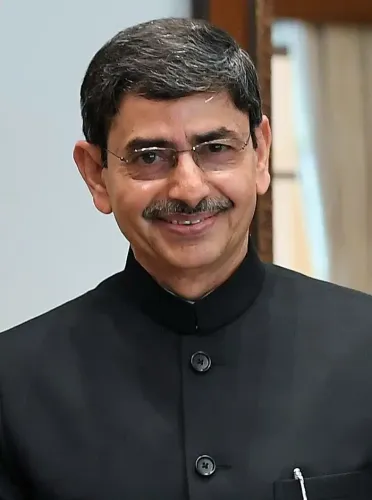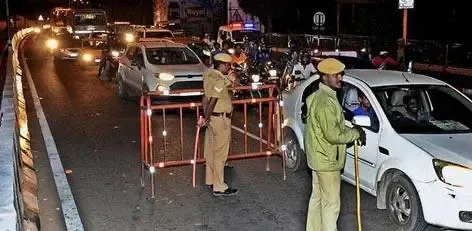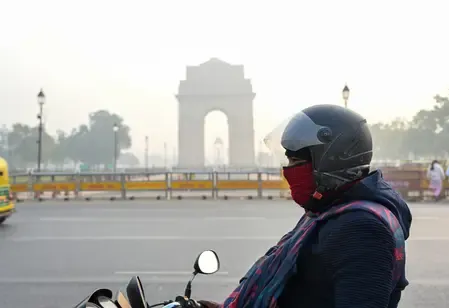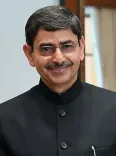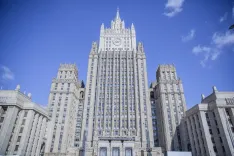Is PM Modi’s Golden Decade a Vision for a Strong, Developed India?
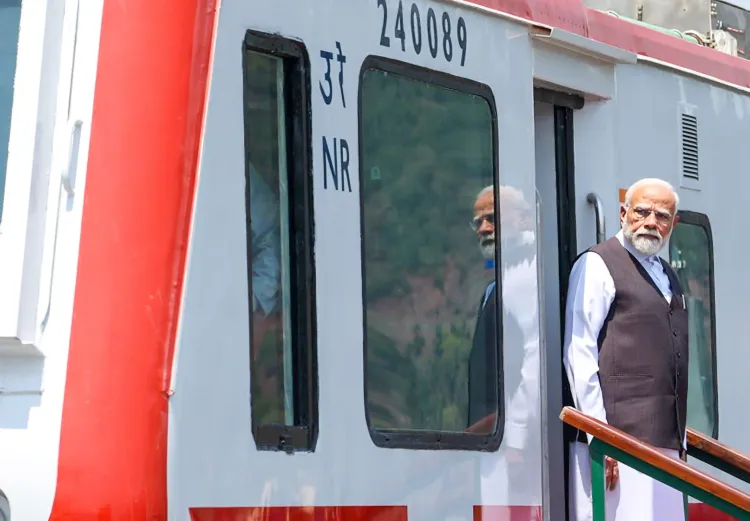
Synopsis
Key Takeaways
- PM Modi’s tenure has been marked by significant governance reforms.
- Key initiatives focus on financial inclusion and housing for the underprivileged.
- National security has been prioritized with proactive military actions.
- The vision for a Developed India by 2047 emphasizes inclusive growth.
- Ethical governance is a cornerstone of Modi's leadership approach.
Chennai, June 11 (NationPress) Tamil Nadu BJP spokesperson and senior leader A.N.S. Prasad highlighted the remarkable advancements made during Prime Minister Narendra Modi’s 11-year leadership as a benchmark for effective governance and growth.
The BJP official urged Congress members, especially Rahul Gandhi, to acknowledge the accomplishments of the BJP-led Central government and learn from its transformative vision for India.
Prasad stated that the Modi era has restored India’s national pride and global standing, which had been undermined by years of corruption and stagnation under previous Congress administrations. Drawing from the leadership of former Prime Minister Atal Bihari Vajpayee, the philosophy of Pandit Deendayal Upadhyaya, and the moral teachings of Thirukkural, PM Modi has redefined governance, prioritizing justice, ethics, and transparency.
Despite what he referred to as persistent misinformation from the Congress party, Prasad stressed that PM Modi has effectively countered caste and communal tensions, fostering a robust and united India.
He criticized Rahul Gandhi for practicing divisive politics, in stark contrast to Modi’s inclusive governance. The Modi administration has initiated numerous groundbreaking programs aimed at uplifting the underprivileged and marginalized populations.
Prasad mentioned how the Pradhan Mantri Jan Dhan Yojana has integrated millions into the banking system, achieving unprecedented levels of financial inclusion. He elaborated, “The Pradhan Mantri Awas Yojana strives to provide affordable housing for everyone, and the Pradhan Mantri Kaushal Vikas Yojana is focused on enhancing the skills of India’s youth for better job opportunities.”
He highlighted that the Swachh Bharat Abhiyan and the Namami Gange Programme have bolstered sanitation infrastructure and safeguarded India’s cultural and ecological heritage. Under Modi’s leadership, Parliament has enacted several landmark legislations, and the Goods and Services Tax (GST) has simplified the convoluted tax framework, enhancing the ease of doing business.
“The Insolvency and Bankruptcy Code (IBC) has addressed non-performing assets and reformed financial discipline,” he added.
The senior BJP leader noted that the Citizenship Amendment Act (CAA) has provided a pathway to citizenship for persecuted minorities from neighboring countries.
He pointed out that initiatives like Make in India and Startup India have invigorated the manufacturing and entrepreneurial landscapes. The Atal Innovation Mission and the National Education Policy are creating a foundation for an innovation-driven, knowledge-based economy.
Prasad emphasized that the Pradhan Mantri Fasal Bima Yojana has offered essential insurance support to farmers, while modernization of infrastructure, especially in railways, has enhanced national connectivity and efficiency.
He brought attention to the Modi government’s ambitious goal of achieving a Viksit Bharat (Developed India) by 2047, which includes vital reforms like One Nation, One Election—a plan to streamline India’s electoral schedule.
He also mentioned that the upcoming 2025 Census is a crucial data-gathering initiative that will inform future policymaking.
Prasad reiterated that the Narendra Modi administration remains committed to integral humanism, balancing economic progress with social and cultural advancement.
The BJP leader commended the Modi government’s decisive approach to national security, citing India’s proactive military actions against terrorism. He specifically referenced Operation Sindhoor, a successful surgical strike that showcased India’s determination to counter cross-border threats. Since 2014, multiple such operations have been authorized, reinforcing India’s image as a sovereign nation unwilling to tolerate terrorism. The bravery of the Indian Armed Forces, Prasad remarked, continues to foster national pride and unity.
As India moves towards 2047, marking the centenary of its Independence, Prasad affirmed that the Modi government’s policies reflect a clear and steadfast vision for inclusive and sustainable development. The focus on good governance, technological innovation, and national unity has laid the groundwork for India to rise as a global leader, he said.
He concluded by asserting that the Modi government’s achievements should serve as a learning experience for Congress and Rahul Gandhi—an illustration of how visionary leadership, grounded in ethical values and national interest, can reshape a nation and inspire future generations.


